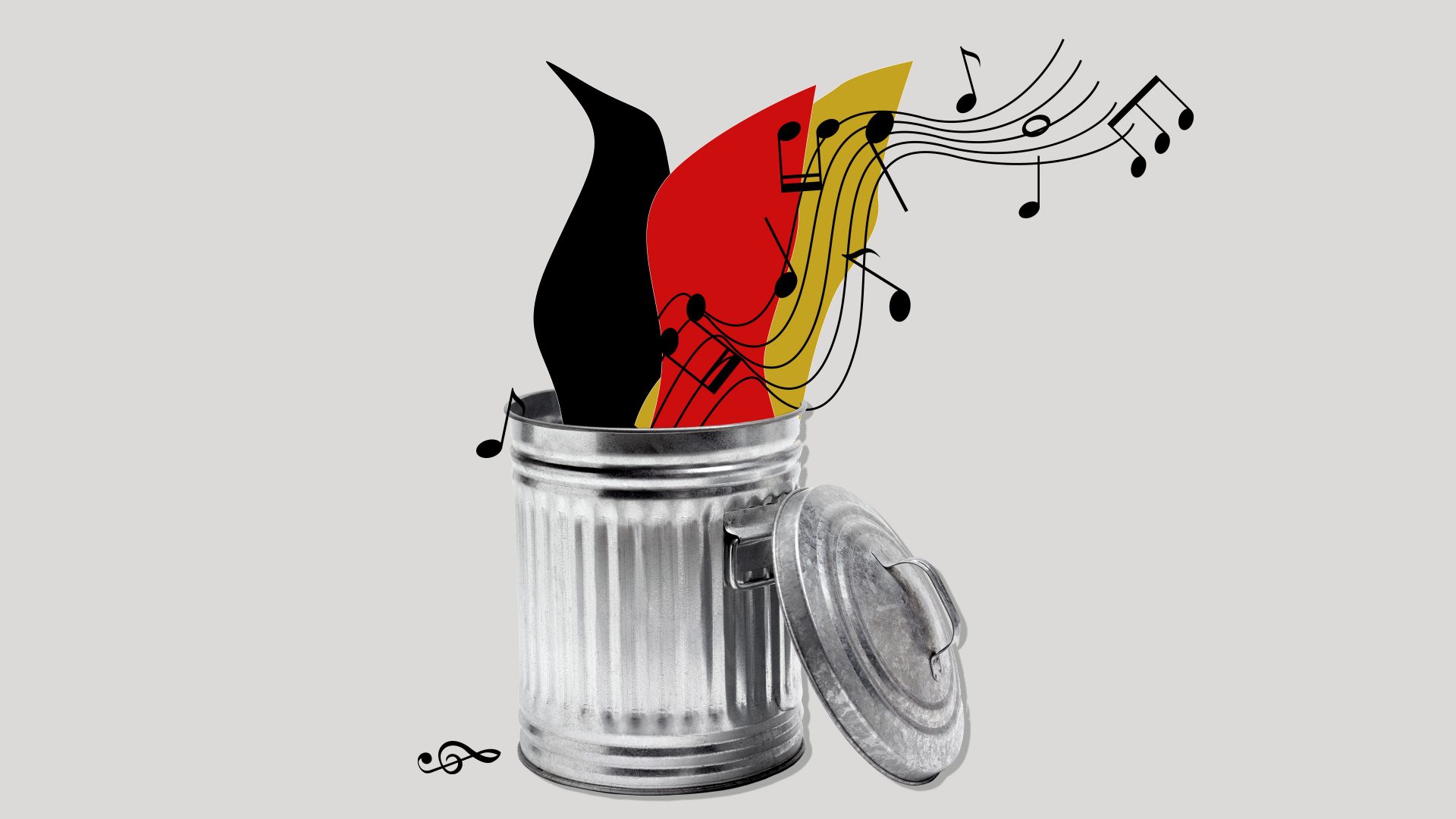It is done! The 2022 Sommerloch (“summer hole”, which is our version of the “silly season”) has been filled. Not with gas supplies; Deutschland is bracing itself for a very chilly winter. But with no real solution in sight, media attention has moved to more pressing matters – namely Layla.
You’re thinking of Eric Clapton? Think again. Because in German, Layla rhymes with geiler (hornier).
And difficult as it is for me to tarnish my nation’s impeccable reputation in
terms of music (minus Eurovision), I’m afraid you just have to forget what
you have heard about Beethoven, Wagner, Schumann’s Lieder etc and face the clichéd reality of hugely popular teutonic hooting to a genre called Party-Schlager.
It makes up for around 20% of the German music industry. And is played at locations such as Oktoberfest (or any other beer tents), après-ski bars in the Alps, Karneval, Volkfests and other fairs and the infamous Bierkönig pub in Mallorca.
From there, Layla made its way to the top of the singles charts, where it has been for weeks now.
Still, many people had never heard of it. That was until the town of Würzburg leaned on the local Volksfest organisers to not play the song. In 2021, the city council agreed that sexist songs (and racist ones) would be banned from festivities.
Which was easier said than done, because a media-fuelled controversy about artistic freedom v censorship got into full swing. As did the Volksfest marquees in Würzburg, Düsseldorf, Münster and elsewhere – where the
crowds rebelliously chanted Layla anyway, a capella if need be.
It does help that Layla’s tunes and lyrics aren’t particularly profound (a trait shared with all the other Party-Schlager).
You must be bursting with curiosity by now, so here’s the refrain:
“Ich hab’ ‘nen Puff
Und meine Puffmama heißt Layla.
Sie ist schöner, jünger, geiler”.
(“I have a brothel
And my madam’s name is Layla.
She is prettier, younger, hornier.”)
It doesn’t translate well, I know, but if you add a continuous loop of “La-La-La-La-Layla” and a singer-friendly 140 beats per minute you’ll find it easily
works – as long as your blood-alcohol level is well above 1.4. Which is the
whole raison-d’être of Schlager.
Needless to say, the song’s producer, Ikke Hüftgold, couldn’t believe his
luck. Since the “scandal” broke, the veteran of Ballermann (the German
Magaluf) has appeared on nearly every news show.
The 45-year-old whose pseudonym translates as “hip-gold” (essentially:
love handles) even got an op-ed in the classy-intellectual paper Die Zeit.
Which makes me think about a name change, too.
According to Hüftgold, creator of another near-world-famous song in 2014 called “Dicke Titten, Kartoffelsalat” (you’ll manage to decode this by yourself), the Layla ban is unconstitutional and the accusations of sexism are unfounded: “Art pays homage to women. Not every tune about women is sexist.”
With admirable astuteness he does, however, admit that his um-tah-um-tah-songs aren’t exactly PC.
But then, he asks: “What about the other Schlager, pop, and rap songs?”
Never mind the whataboutism – he does have a point. Just take a look at
these very short best-of-German Schlager lyrics:
Mickie Krause, 1999: “Ich will 10 nackte Friseusen, 10 nackte Friseusen, ohoh, 10 nackte Friseusen, Mit richtig feuchten Haaren…” (vocab: nackt = naked / Friseuse = derogatory for female hairdresser / feuchte Haare = wet hair).
GG Anderson, 2000: “Nein heißt ja, wenn man lächelt so wie Du” (“No means yes if one smiles as you do”).
Should you wonder: the 1950s, 60s and 70s Schlager weren’t less sexist, just less explicit. But the mood is changing, at least in regard to big radio stations: they stay clear of Layla so far, arguing it’s “not the right fit”.
Interestingly, German public broadcaster ZDF seems unconcerned.
We won’t know for sure until Layla is performed in a few days at the famous ZDF-Fernsehgarten, the embodiment of feel-good Sunday morning shows, addressed at elderly viewers. You will find nothing similar on the BBC. Or
any other channel. In the world.
Because no one masters the art of rhythmic clapping and Schunkeln (swaying to music while sitting down, arms firmly linked with the people to your left and right) as we do. And, admittedly, the Austrians.
Thanks to all the attention, Layla has conquered the German Spotify charts. Can’t beat the fact that every nation is entitled to its own bad taste.
And just so the UK doesn’t have to miss out, Hüftgold is currently producing an English version of Layla. Enjoy.




